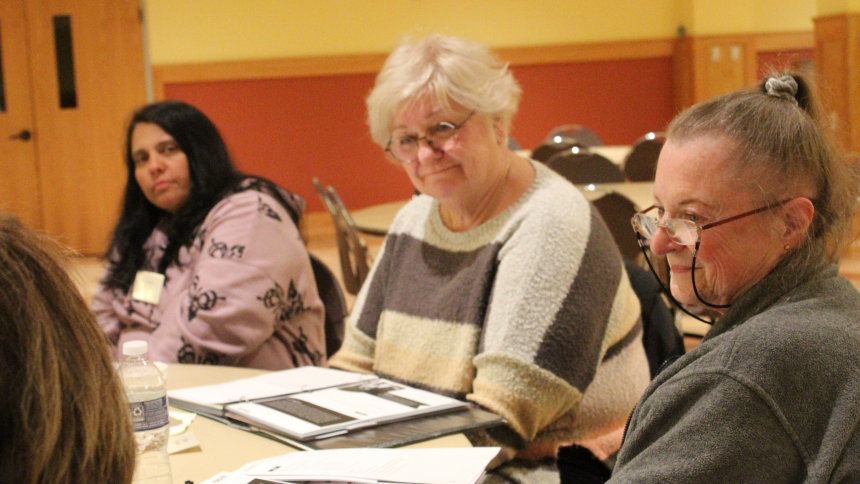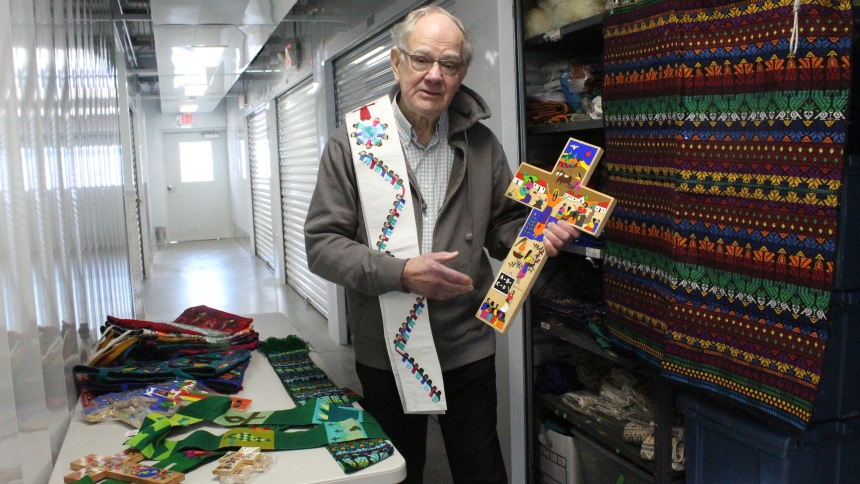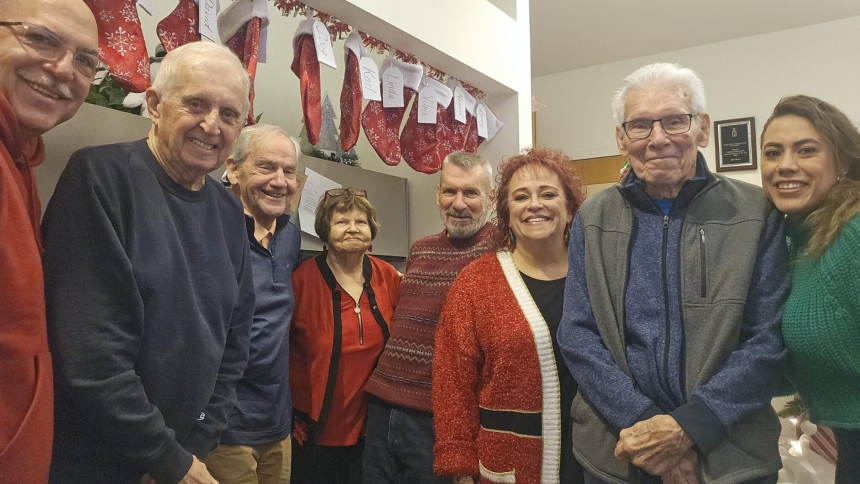
“Confession frees us to be who God wants us to be.” - FORMATION video on ‘Forgiven: The Transforming Power of Confession’
SCHERERVILLE – The sacrament of reconciliation isn’t just about forgiveness, but also highlights God’s mercy, provides healing and brings God closer to those who seek his love.
That’s the message received by parishioners at St. Michael the Archangel who are participating in a weekly Lenten adult formation series on “Forgiven: The Transforming Power of Confession.”
While the introductory session, “Where Are You?” asked attendees to evaluate what the sacrament means to them and how they approach it, the second class on March 8 delved deeper into confession as “An Encounter with Mercy.”
“In the first session,” explained the study guide, “we looked at guilt as a wake-up call, a way to turn our attention back to God when we have sinned. In (the second) session, we look more closely at God’s invitation to encounter his mercy and healing in a very real and tangible way in the sacrament of reconciliation.”
The series continued March 15 with an explanation of the rite of reconciliation, meets at 7 p.m. Wednesday, March 22 on “The Biblical Foundation: Sin, Mercy and The Sacrament of Confession” and concludes on Wednesday, March 29, by answering common questions about confession and providing an opportunity to go to confession.
Lee Ann Egan, one of the five facilitators for the series presented by St. Michel’s Adult Catholic Education Committee, said her goal was simply “to learn more about the sacrament of confession, and in reading the materials, I found out things I didn’t know. Confession is not just walking in and giving the priest a laundry list of sins to forgive, but about entering into a (closer) relationship with Jesus.”
The introductory commentary for the second session noted: “We encounter God himself in reconciliation … and we recognize that God is love and his mercy comes from his love for us,” said one speaker.
Another comment pointed out that “Reconciliation gives us the overwhelming grace to fight sin. God loves us right where we are, but he loves us too much to leave us there.”
Each of the weekly sessions includes a video that offers reflections on the spotlighted topic, and in talking about the mercy God offers through reconciliation, presenters recalled the scripture passage about the woman who had committed adultery and was brought to Jesus as she was about to be stoned to death. (John 8: 3-11)
“Jesus bent down and began to write on the ground with his finger. But when they continued asking him, he straightened up and said to them, ‘Let the one among you who is without sin be the first to throw a stone at her.’ (John 8: 6-7)
When the mob that had surrounded her began to leave, Jesus also refused to lift a stone.
“Then Jesus straightened up and said to her, ‘Woman, where are they? Has no one condemned you?’ She replied, ‘No one, sir.’ Then Jesus said, ‘Neither do I condemn you. Go, [and] from now on do not sin anymore.’” (John 8: 10-11)
“Jesus doesn’t condemn her; he loves her,” the speaker in the video noted. “If he could forgive her, he could forgive me.”
Another speaker called for those confessing to “make an act of trust, and in that trust God will give us eternal life.”
“When I go to confession and hear the words ‘I absolve you’ from the priest, I always feel exhilarated,” said Bill Napolillo, adding that he realized he has some forgiving to do, too .
“Someone (recently) to me that I need to forgive someone in my family, someone I thought I was done with,” he explained. “After attending this program, I feel more called to talk to this person and forgive them. (I realize that) I am withholding live that she needs.”
Mary Ann Adamson, facilitator for the March 8 session, pointed out that “So many people are uncomfortable going to confession, but after hearing (tonight) how much God loves us, we should see (confession) as a gift to us.
“When our committee met to discuss the material for this series, almost all of us admitted having some reservations about going to confession, but it is a good thing to do during Lent,” she said.
In discussing how some people who are not close to God have an “identity crisis,” Connie Solorio said her lifelong faith has prevented that from happening to her. “I know God loves me,” she said confidently.
Isabel Munoz suggested that when people “question their faith, like many people do, they question their own identity. But when I came back to Jesus, and knew who he was, then I knew who I was.”
Adamson summed up the lesson by noting that confession is “more than reciting your sins, it is about entering a relationship with God. He not only forgives us, he (also) heals us.”
The “Forgiven: The Transforming Power of Confession” videos are available on the FORMED website at watch.formed.org/forgiven for those who have a subscription through their parish.



